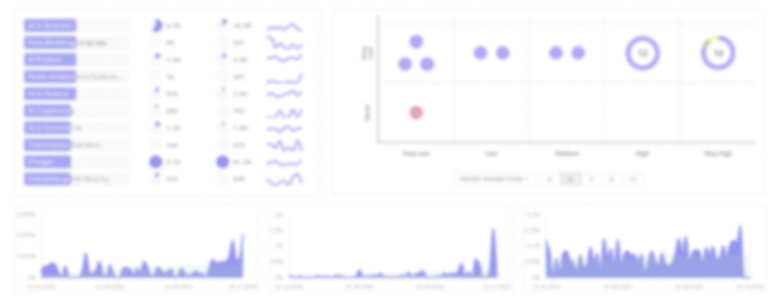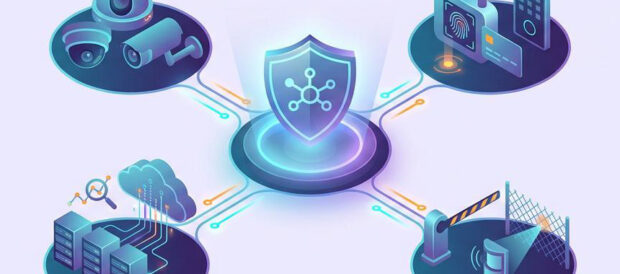
Industrial And Workplace Safety Report
: Analysis on the Market, Trends, and TechnologiesThe industrial and workplace safety market is shifting from compliance to predictive risk control as technology and data converge: the addressable workplace-safety market measured roughly at USD 15.52 billion in 2023 and is projected to grow at double-digit rates (internal CAGR 10.85%) through the coming decade, reflecting strong commercial demand for AI, IoT and safety-software solutions. Persistent basic-control gaps — fall-protection, hazard communication and lockout/tagout — continue to produce large citation volumes and drive near-term buying for detection, training and verification tools.
The last update of this report was 82 days ago. If you spot incomplete or incorrect info, please let us know.
Topic Dominance Index of Industrial And Workplace Safety
The Topic Dominance Index analyzes the time series distribution of published articles, founded companies, and global search data to identify the trajectory of Industrial And Workplace Safety relative to all known Trends and Technologies.
Key Activities and Applications
- Real-time hazard detection and automated alerts using AI video analytics to flag unsafe acts and PPE non-use on the shop floor Workplace Safety Market (2024).
- Wearable monitoring for physiological strain, exposure and location (fatigue, heat, toxic gases, proximity to moving equipment) to prevent high-consequence injuries Industrial and Workplace Safety Market Outlook 2025–2035.
- Predictive maintenance and machine-safety integration: presence sensing, safety controllers and programmable safety modules tied to asset health analytics to avoid lockout/tagout failures and machinery incidents Industrial Safety Market, Component Report (2025).
- Immersive competence building (VR/AR) for high-risk tasks and emergency drills to reduce human-error rates and improve procedural compliance Construction Worker Safety Report (2024).
- Lone-worker protection and emergency response orchestration (pendants, gateways, cloud monitoring) for remote and mobile crews.
Emergent Trends and Core Insights
- Severity-first performance metrics: organisations move from frequency metrics (TRIR) toward PSIF/SIF to prioritise interventions that prevent catastrophic outcomes Top Trends in OSH for 2025.
- AI + edge compute adoption: on-site inference reduces latency and privacy exposure while enabling instant shutdown triggers and local risk scoring Industrial Safety Systems Market (2024).
- Convergence of occupational safety and wellbeing: mental-health, fatigue and human factors now feed safety-decision systems; programs that combine physiological sensing with behavioural coaching show measurable reductions in error-related incidents Workplace Safety Stats & Trends (web synthesis).
- Platformization and data lakes: buyers prefer integrated EHS/safety platforms (incident management, training, analytics) instead of siloed point tools, driving consolidation in software and services Workplace Safety Market (MarketsandMarkets, 2024).
- Persistent low-tech gaps (fall protection, hazard communication, LOTO) sustain near-term demand for verification and retrofit solutions despite long-term digital transformation OSHA top citations summary (2024).
Technologies and Methodologies
- Computer vision for PPE detection, posture/behavior recognition and automated compliance logs Intenseye.
- Wearables and multi-sensor IoT (biometric, gas, noise, vibration, GNSS) with low-latency gateways for site-level situational awareness Industrial Scientific gas detection lineage.
- Edge AI and zero-cloud architectures for latency-sensitive detection and privacy control in regulated environments.
- Digital twins and scenario simulation to validate controls and training regimes without exposing workers to risk.
- Behavior-based safety augmented by AI feedback loops: real-time recognition, coaching prompts and incentive signals to increase safe behaviours and reduce human-factor incidents.
Industrial And Workplace Safety Funding
A total of 513 Industrial And Workplace Safety companies have received funding.
Overall, Industrial And Workplace Safety companies have raised $14.9B.
Companies within the Industrial And Workplace Safety domain have secured capital from 1.7K funding rounds.
The chart shows the funding trendline of Industrial And Workplace Safety companies over the last 5 years
Industrial And Workplace Safety Companies
- Seeteria — Seeteria converts existing CCTV into proactive collision-avoidance systems specifically for material-handling vehicles (forklifts). Their vision-AI predicts worker/vehicle collisions ahead of impact and integrates with site workflows so operators receive preemptive alerts rather than post-incident footage. The approach lowers the need for new hardware and targets a high-cost incident type: forklift collisions with large direct and indirect losses.
- IntelliSafe Analytics — IntelliSafe develops wearable + AI systems that focus on the human factor by combining physiological and behavioral sensing to predict and prevent accidents. Their human-centric architecture aims to surface early signs of fatigue, stress or unsafe ergonomics and deliver actionable signals to safety managers. The company positions its system as a way to reduce human-factor incidents through continuous monitoring and coaching.
- The Industrial Athlete, Inc. — This firm packages sports-medicine methods for industrial injury prevention, deploying onsite clinicians and targeted early-intervention programs to reduce musculoskeletal disorders. Their model emphasizes leading indicators (early soreness, ergonomics, behaviors) and claims substantial injury reductions through on-floor interventions and continuous programs. The firm blends clinical practice with operational reporting to make prevention financially visible to employers.
- Grace Connected Safety — Grace supplies industrial-grade lone-worker pendants and hybrid gateways (cellular, satellite, IP) tied to a cloud monitoring portal; the product suite focuses on remote, mobile and off-grid worker safety scenarios. The architecture supports multi-network connectivity and fall detection combined with alarm-buddy features for teams working in remote or harsh deployments. This product class fills gaps where standard wearables or phone-based solutions fail because of coverage or ruggedness needs.
- iotAR — iotAR combined IoT sensors with augmented reality overlays for simple machine monitoring and operator support when it operated; its product set illustrates the integration pathway between sensor telemetry, lightweight AR guidance, and frontline decision support. While the company’s market presence contracted, its product model remains a useful example for shops aiming to merge condition monitoring with operator-facing guidance during maintenance and safety checks.
TrendFeedr’s Companies tool is an exhaustive resource for in-depth analysis of 8.2K Industrial And Workplace Safety companies.
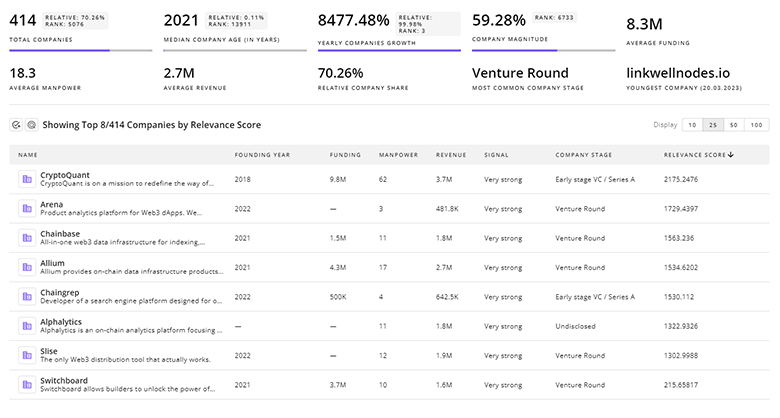
8.2K Industrial And Workplace Safety Companies
Discover Industrial And Workplace Safety Companies, their Funding, Manpower, Revenues, Stages, and much more
Industrial And Workplace Safety Investors
The TrendFeedr’s investors tool features data on 1.5K investors and funding activities within Industrial And Workplace Safety. This tool makes it easier to analyze complex investment patterns and assess market potential with thorough and up-to-date financial insights.
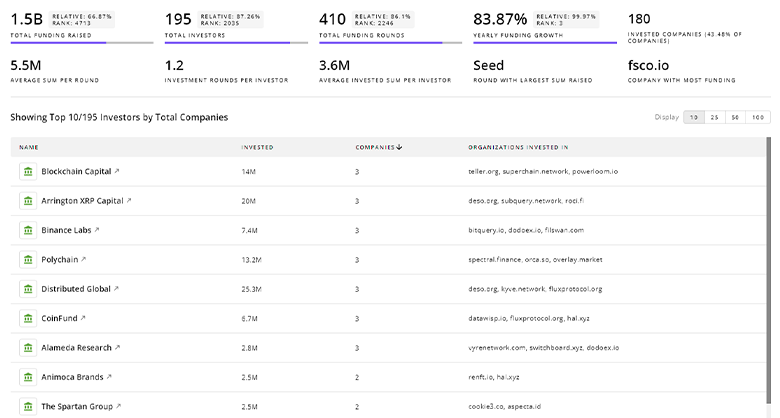
1.5K Industrial And Workplace Safety Investors
Discover Industrial And Workplace Safety Investors, Funding Rounds, Invested Amounts, and Funding Growth
Industrial And Workplace Safety News
Stay ahead of the curve with Trendfeedr’s News feature. The tool provides access to 9.6K Industrial And Workplace Safety. Navigate the current business landscape with historical and current Industrial And Workplace Safety data at your fingertips.
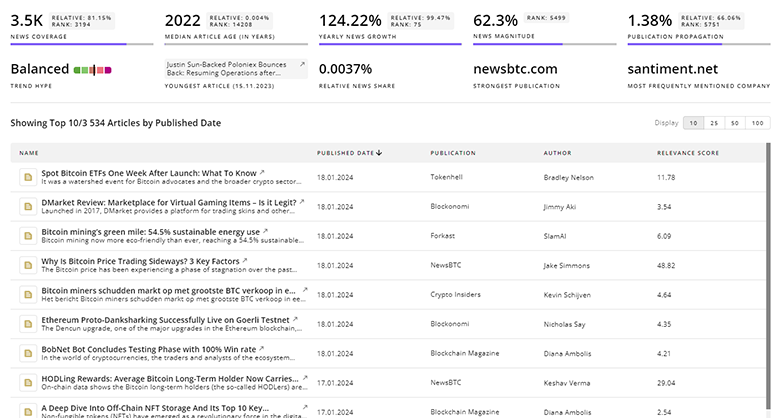
9.6K Industrial And Workplace Safety News Articles
Discover Latest Industrial And Workplace Safety Articles, News Magnitude, Publication Propagation, Yearly Growth, and Strongest Publications
Executive Summary
Industrial and workplace safety is transitioning from siloed compliance activities to data-driven prevention programs that combine sensing, AI and human-centric interventions. The market anchors around two parallel buying drivers: (1) elimination of persistent basic control failures (e.g. fall protection, LOTO, hazard communication) that deliver immediate regulatory and cost benefits, and (2) investments in predictive platforms and wearable/vision systems that reduce high-consequence events and improve uptime. Financially, major market studies and the internal trend dataset converge on a multi-billion-dollar global opportunity with high growth, but vendors define scope differently; buyers should therefore specify the exact slice (PPE, safety-instrumented systems, software/platforms, wearables) when benchmarking vendors. Strategic buyers will prioritize (a) pilots that deliver measurable SIF/PSIF reductions, (b) solutions that integrate with existing OT/IT and training workflows to avoid costly rip-and-replace, and (c) programs that treat human wellbeing (fatigue, mental health) as an operational control, not an HR add-on.
If you’re an expert in trends or emerging tech, we invite you to contribute to our insights.
